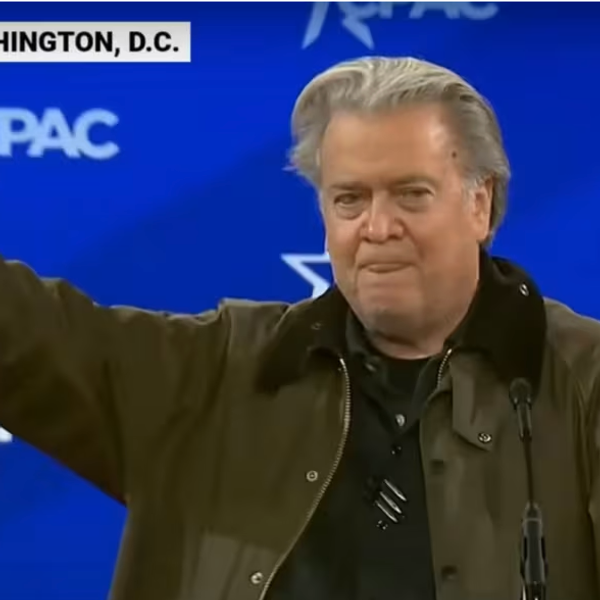The Three Senate Ds: Leaving Vigor And Voices Behind
The Senate chamber holds a fascination as political theater, but three great Democratic players are taking their last bows. Their vigorous voices will be missed in the fight against President Trump. There’s nobody quite like this trifecta, all proudly from humble origins.
“Where’s the justice, Mr. President?” This question was often asked of the presiding senator by Senator Barbara Boxer of California. Democratic Leader Harry Reid of Nevada was once a boxer himself, and it showed up in his style. Never one for subtlety, his blunt political punches can be felt a mile away. Senator Barbara Mikulski of Maryland, dean of the Senate women, is formidable as a friend or foe — always with a touch of the Baltimore girl she was. She has reached 80; Reid and Boxer are in their 70s. They decided it was time not to run again.
Gone unnoticed amid election frenzy, their leaving feels as autumnal as the tree leaves outside the Capitol. Seems like yesterday when I was a rookie reporter, studying these characters.
In total, they’ve served 84 years in the Senate. Thinking it over, they changed it forever, especially the two trailblazing women. Reid was frank in a floor speech on how Boxer “mentored” him on women’s issues. Then he spoke in closing, “You are and will always be my sister.” Such open sentiments are rare.
Reid is also open about his contempt for Donald Trump, cutting him as a racist and a sexual predator as the 2016 campaign wore on. He worked hard to deliver Nevada for Hillary Clinton. After the election, he urged Trump, “Rise to the dignity of the office.” His successor as Democratic leader, Charles Schumer, is a silver-tongued New Yorker, likely to have a better art of dealing with Trump.
Reid’s antagonism toward his rival, Majority Leader Mitch McConnell, R-Ky., went both ways: no love lost. They contained it on the floor, but in his new memoir, “The Long Game,” McConnell made plain his frustration with Reid, “bombastic” in front of cameras, saying his floor style was like a campaign studio. Usually, party leaders strive for decorum. Leaders Trent Lott, R-Miss., and Tom Daschle, D-S.D., got along.
Actually, Reid’s Trumanesque way with words made a foil for the abstract president: “Professor Obama,” as McConnell calls him. Barack Obama erred early, thinking he could charm and work with House Republicans — even sly McConnell. Against Reid’s strenuous advice, he surrendered and extended the George W. Bush tax cuts for the well-off, close to Republican hearts. That may have marked Obama as naive in negotiations — he tried to be friends with his enemies. Reid, son of a miner in Searchlight, Nevada, never does that.
Oh, Barbara. Both Mikulski and Boxer are heroines in my book. They radiate intensity. Boxer ran for the Senate in 1992, Year of the Woman, after the Clarence Thomas Supreme Court confirmation hearings. Thomas squeaked by, 52-48, in an unforgettable drama involving Anita Hill’s testimony that he sexually harassed her. America was unimpressed to see the Senate at work, under Senator Joe Biden’s sloppy gavel, to see a sea of ties voting. There were two women in the Senate.
Today there are 20. Every woman elected since owes a debt to Mikulski for bringing a bipartisan dinner group of Senate women together to get to know each another and discuss ropes and rules of the clubby Senate. Mikulski hosts the monthly dinner, building community. As a social worker, she organized opposition to a highway cutting through Baltimore’s downtown — and won. She told me, “Being a senator is like being a social worker with power.” And then she laughed. Her first run was for the city council.
A grocer’s daughter, Mikulski went to the same Catholic girls school as Nancy Pelosi. When she chaired the Appropriations Committee and Pelosi was House speaker, they were the most powerful women in Congress — and still are. Reid praised the Marylander’s floor oratory: no one better. Her words are heard across the aisle, and when she’s mad, you know it.
Same goes for Boxer, a Brooklyn native who shows resolve and fury at any injustice that crosses her. A champion of the environment, she crossed swords with Chairman James Inhofe, R-Okla., a climate change denier, yet they seem friendly. In a final stand, Boxer denounced the election results: “We have a system where the winner can lose.”
Time to hang up the gloves. But the fighter still remains, as the Simon and Garfunkel song says.
To find out more about Jamie Stiehm and read features by other Creators Syndicate writers and cartoonists, visit www.creators.com.
IMAGE: Senate Minority Leader Harry Reid (D-NV) responds to Republican leadership during a news conference on Supreme Court nominations after party caucus luncheons on Capitol Hill in Washington February 23, 2016. REUTERS/Gary Cameron













